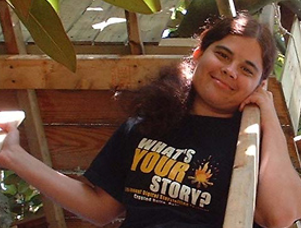Related Research Articles

Literary theory is the systematic study of the nature of literature and of the methods for literary analysis. Since the 19th century, literary scholarship includes literary theory and considerations of intellectual history, moral philosophy, social philosophy, and interdisciplinary themes relevant to how people interpret meaning. In the humanities in modern academia, the latter style of literary scholarship is an offshoot of post-structuralism. Consequently, the word theory became an umbrella term for scholarly approaches to reading texts, some of which are informed by strands of semiotics, cultural studies, philosophy of language, and continental philosophy.
Narratology is the study of narrative and narrative structure and the ways that these affect human perception. It is an anglicisation of French narratologie, coined by Tzvetan Todorov. Its theoretical lineage is traceable to Aristotle (Poetics) but modern narratology is agreed to have begun with the Russian formalists, particularly Vladimir Propp, and Mikhail Bakhtin's theories of heteroglossia, dialogism, and the chronotope first presented in The Dialogic Imagination (1975).
Marjorie Hope Nicolson was an American literary scholar. She was elected a member of the American Philosophical Society in 1941 and a Fellow of the American Academy of Arts and Sciences in 1955.

Nancy Katherine Hayles is an American postmodern literary critic, most notable for her contribution to the fields of literature and science, electronic literature, and American literature. She is the James B. Duke Distinguished Professor Emerita of Literature, Literature, Trinity College of Arts & Sciences at Duke University.
Monika Fludernik, a native Austrian, is professor of English literature and culture at the Albert Ludwigs University of Freiburg, Germany.
Cognitive philology is the science that studies written and oral texts as the product of human mental processes. Studies in cognitive philology compare documentary evidence emerging from textual investigations with results of experimental research, especially in the fields of cognitive and ecological psychology, neurosciences and artificial intelligence. "The point is not the text, but the mind that made it". Cognitive Philology aims to foster communication between literary, textual, philological disciplines on the one hand and researches across the whole range of the cognitive, evolutionary, ecological and human sciences on the other.
Fiction theory is a discipline that applies possible world theory to literature. Fiction theory scholars and critics have articulated various theses rooted in Saul Kripke's application of modal logic to semantics. Drawing on concepts found in possible world theory, theorists of fiction study the relationships between textual worlds and the world outside the text. The overarching idea in fiction theory is that the relationships between the imaginary worlds of fiction and the actual world in which we live are complicated, and that one ought not dismiss fiction as simply stories that are not "true". Theorists of fiction pose challenging questions about, and offer constructive ways of exploring, the often complex relations between the worlds of fiction and the "real" world in which we live.
James Phelan is an American writer, literary scholar, and Distinguished University Professor of English at The Ohio State University. He joined the faculty of Ohio State in 1977 after earning his MA and PhD from the University of Chicago. At the University of Chicago, he studied with the Chicago School theorists Sheldon Sacks and Wayne Booth. In 2013 he was awarded an honorary doctorate from Aarhus University (Denmark), and in 2016 he was inducted into the Norwegian Academy of Science and Letters. In 2020 the International Society for the Study of Narrative named him the winner of the 2021 Wayne C. Booth Lifetime Achievement Award. The citation for the Award reads in part,"Phelan has influenced generations of narrative theorists and literary scholars, as he has provided a powerful model for thinking about the purposes of literature and reasons and methods to engage with it. In so doing, he has transformed and energized the interdisciplinary field of narrative studies." The recording of the Award ceremony from the May 2021 ISSN Conference can be found at the Society's website.
Lisa Zunshine is an American scholar of literature and theory of mind, who publishes in eighteenth-century British literature, comparative literature, and cognitive science. She came to the United States as a refugee, from Latvia, when she was twenty-one, and became a U.S. citizen in 1998. She is Bush-Holbrook professor of English at the University of Kentucky, Lexington; a Guggenheim fellow (2007); and author and editor of twelve books, most recently, Getting Inside Your Head: What Cognitive Science Can Tell Us about Popular Culture ,The Oxford Handbook of Cognitive Literary Studies, and The Secret Life of Literature.
The Signifying Monkey: A Theory of Afro-American Literary Criticism is a work of literary criticism and theory by the American scholar Henry Louis Gates Jr. first published in 1988. The book traces the folkloric origins of the African-American cultural practice of "signifying" and uses the concept of signifyin(g) to analyze the interplay between texts of prominent African-American writers, specifically Richard Wright, Ralph Ellison, Zora Neale Hurston and Ishmael Reed.

Jay Clayton is an American literary critic who is known for his pioneering work on the relationship between nineteenth-century culture and postmodernism. He has published influential works on Romanticism and the novel, Neo-Victorian literature, steampunk, hypertext fiction, online games, contemporary American fiction, technology in literature, and genetics in literature and film. He is the William R. Kenan, Jr. Professor of English and Director of the Curb Center for Art, Enterprise, and Public Policy at Vanderbilt University.
Rita Felski is an academic and critic, who holds the John Stewart Bryan Professorship of English at the University of Virginia and is a former editor of New Literary History. She is also Niels Bohr Professor at the University of Southern Denmark (2016–2021).

Deena Larsen is a new media and hypertext fiction author involved in the creative electronic writing community since the 1980s. Her work has been published in online journals such as the Iowa Review Web, Cauldron and Net, frAme, inFLECT, and Blue Moon Review. Since May 2007, the Deena Larsen Collection of early electronic literature has been housed at the Maryland Institute for Technology in the Humanities.

Maria Gertrudis "Mieke" Bal is a Dutch cultural theorist, video artist, and Professor Emerita in Literary Theory at the University of Amsterdam. Previously she also was Academy Professor of the Royal Netherlands Academy of Arts and Sciences and co-founder of the Amsterdam School for Cultural Analysis at the University of Amsterdam.
Myriam J. A. Chancy is a Haitian-Canadian-American writer and a fellow of the John Simon Guggenheim Memorial Foundation. As of 2008, she is the Hartley Burr Alexander Chair of Humanities at Scripps College of the Claremont Consortium. As a writer, she focuses on Haitian culture, gender, class, sexuality, and Caribbean women's studies. Her novels have won several awards, including the Guyana Prize in Literature Caribbean Award.
Marjorie Coverley Luesebrink is an American writer, scholar, and teacher. Writing hypermedia fiction under the pen name M.D. Coverley, she is best known for her epic hypertext novels Califia and Egypt: The Book of Going Forth by Day. Her works incorporate text, image, animation, sound, and structure to create spatial, visual story worlds. A pioneer born-digital writer, she is part of the first generation of electronic literature authors that arose in the 1987–1997 period. Her career includes novels and short stories, scholarship, curating, editing, teaching, and publishing. She is a founding board member and past president of the Electronic Literature Organization and the first winner of the Electronic Literature Organization Career Achievement Award, which was named in her honor.
Gerald J. Prince is an American academic and literary theoretician. He is Professor of Romance Languages at the University of Pennsylvania, where he is also affiliated with department of Linguistics and the Program in Comparative Literature, and with the Annenberg School for Communication.
Teckyoung Kwon is a literary critic, translator and professor in English literature at the School of English, Kyung Hee University, Seoul, South Korea. Her research interests are psychoanalysis, ecology, American and British fiction, narrative theory, neuro-humanities, Korean literature and Dao.
Aesthetic illusion is a type of mental absorption which describes a generally pleasurable cognitive state that is frequently triggered by various media or other artifacts. Recipients can be drawn into a represented world imaginatively, emotionally or, to some extent, rationally and experience the world, the characters and the story in a lifelike way. The emergence of aesthetic illusion depends heavily on an authored vision provided by a (media) artifact. Thus, different recipients can be expected to share similar imaginative experiences, which stands in contrast to more recipient-centered illusionist experiences like hallucinations, dreams, daydreams and delusions. Aesthetic illusion (immersion) is always counterbalanced by a rational awareness of the recipient of the difference between the "real" and the "imagined". In other words, aesthetic illusion is a double-layered phenomenon in which recipients constantly fluctuate between their "virtual" body on the level of immersion and their "real" body on the level of rational awareness and distancing effect.
Susan Laura Mizruchi is Professor of English Literature and the William Arrowsmith Professor in the Humanities at Boston University. Her research interests include nineteenth- and twentieth-century American literature, religion and culture, literary and social theory, literary history, history of the social sciences, and American and Global Film and TV. Since 2016, she has served as the Director of the Boston University Center for the Humanities.
References
- 1 2 3 Ryan, Marie-Laure. "About Me". Marie-Laure Ryan. Retrieved 27 April 2021.
- ↑ Ryan, Marie-Laure. "Info". Marie-Laure Ryan. Retrieved 27 April 2021.
- 1 2 "Marie-Laure Ryan's Vita". Archived from the original on 2008-10-12. Retrieved 2009-05-10.
- 1 2 "Game Studies 0101: Ryan: Beyond Myth and Metaphor: The Case of Narrative in Digital Media". gamestudies.org. Retrieved 2021-05-07.
- ↑ "Marie-Laure Ryan". CCCB (in Catalan). Retrieved 2021-05-07.
- ↑ Ryan, Marie-Laure (2006). Avatars of story. Minneapolis, MN: University of Minnesota Press. ISBN 0-8166-4686-4.
- ↑ "Marie-Laure Ryan's Vita". Archived from the original on 2008-10-12. Retrieved 2009-05-10.
- ↑ "Marie-Laure Ryan | the living handbook of narratology". www.lhn.uni-hamburg.de. Retrieved 2021-05-07.
- ↑ "John Simon Guggenheim Foundation | Marie-Laure Ryan" . Retrieved 2021-05-04.
- ↑ Ryan, Marie-Laure. "About Me". Marie-Laure Ryan. Retrieved 27 April 2021.
- ↑ "The Ohio State University Press". ohiostatepress.org. Retrieved 2021-05-04.
- ↑ "books". www.marilaur.info. Retrieved 2021-04-28.